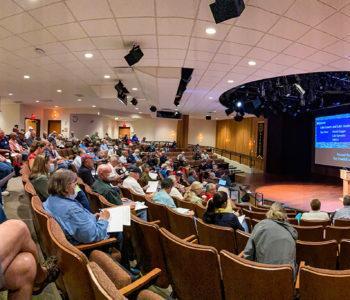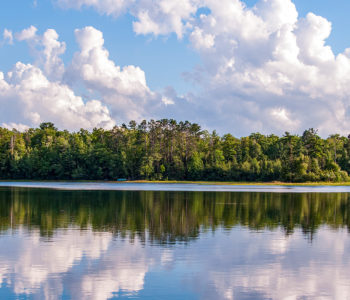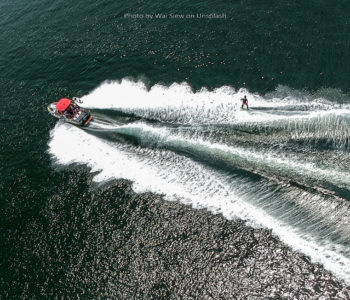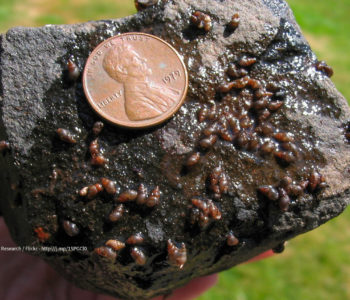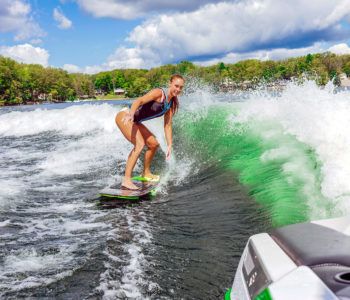
Wake Boats and Lakes
New Report from Wisconsin’s Green Fire
Wisconsin’s Green Fire (WGF) released a new report on the effects of wake boats on Wisconsin lakes. The increasing popularity of wake boats on inland lakes has prompted widespread and vocal criticism of the effects that these specially designed boats have on ecosystem health. Critics are demanding local and state regulations to curtail use of the wake boats.
WGF’s report “The Effects of Wake Boats on Lake Ecosystem Health: A Literature Review,” compiles findings from over 175 scientific studies in several U.S. states, documenting several kinds of negative effects from wake boats on lakes. Wake boats can spread aquatic invasive species, increase shoreline erosion, damage aquatic plants including manoomin (wild rice), worsen water quality due to re-suspension of sediments, and negatively impact birds and fish, particularly nesting loons and spawning fish.
Author of the report, David A. Ortiz, a PhD candidate at the University of Wisconsin—Madison says, “This project bridges scientific research and best practices on how wake boat use can be part of a long-term sustainability plan for Wisconsin lakes.”
This WGF report provides the Wisconsin Legislature and local units of government with several pro-conservation recommendations that support recreational uses of lakes while protecting the health of lake ecosystems.
Among those recommendations:
- Wake boating should only be done on lakes with at least 40 contiguous acres of open water where the entire contiguous area is greater than 20 feet deep and more than 600 feet from any shoreline. This does not mean 40-acre lakes—rather, it means limiting wake boat use to larger and deeper lakes where the impacts on shorelines, aquatic habitats, and wildlife, can be minimized.
- To reduce the spread of invasive species which can easily survive in leftover ballast and bilge water on wake boats, wake boat owners should hot pressure wash the boat or treat with bleach and let dry for at least 4 days before using their boats on different water bodies.
- Wisconsin’s Green Fire also recommends online training on proper use and risks of wake boats, along with informational signs at waterways.
Wisconsin is not alone in dealing with controversy over wake boats. In January 2024, Vermont’s Agency of Natural Resources approved a rule that prohibits wake boat use on lakes less than 50 contiguous acres and those less than 20 feet deep. Wake boats in that state cannot operate less than 500 feet from any shore. The WGF report provides details on policies that states and communities around the U.S. and abroad have taken to protect lakes from negative impacts of wake boats.
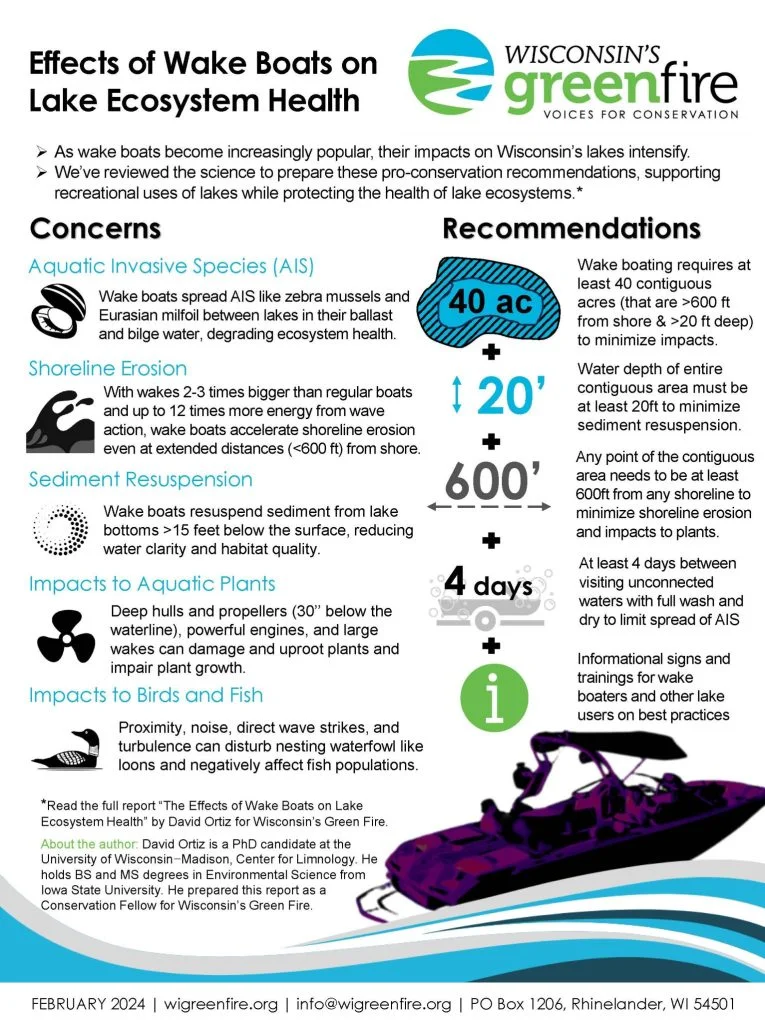
_________________________________________
This infographic above summarizes the report (download a PDF version of the infographic here). Both the infographic and full report are free to download and share with attribution to David A. Ortiz and Wisconsin’s Green Fire.



